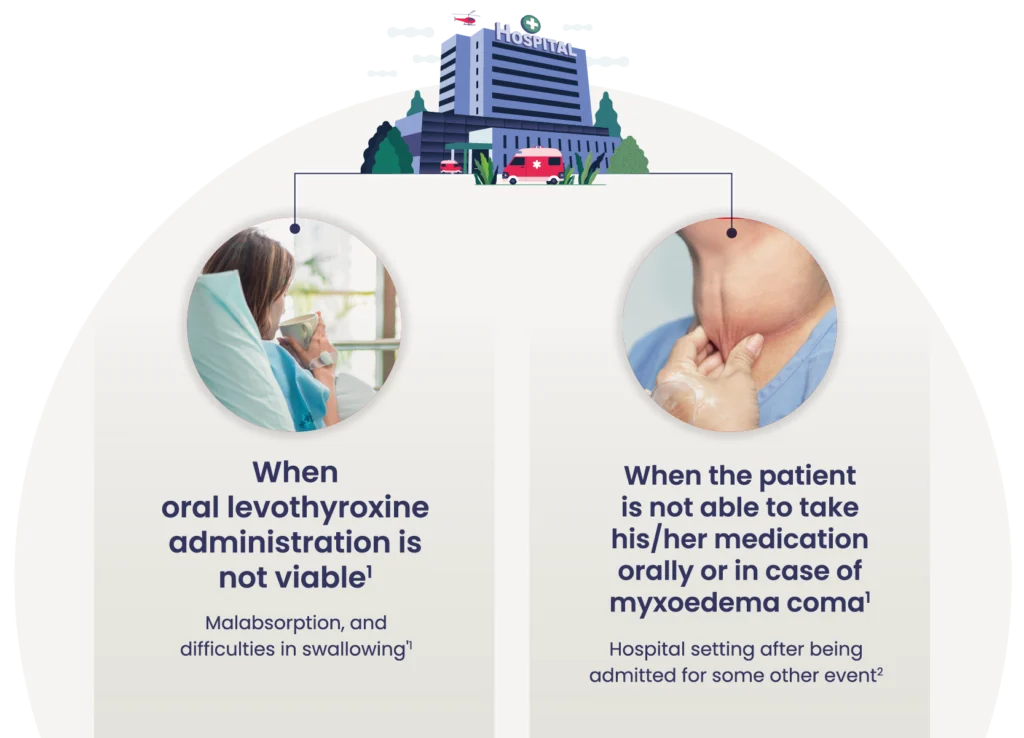When oral therapy is not viable
& in cases of MYXOEDEMA COMA
& in cases of MYXOEDEMA COMA
When is an injectable suitable?

PATIENTS’ ABILITY TO TAKE MEDICATIONS ORALLY
If a patient has difficulties swallowing or has gastrointestinal issues (e.g. malabsorption) that affect oral medication absorption, the injectable form of levothyroxine may be used instead.
EMERGENCY SITUATIONS
Injectable levothyroxine may be administered in emergency situations where rapid correction of severe hypothyroidism is necessary. Intravenous administration allows for quicker absorption and onset of action compared to oral ingestion.
POST-SURGICAL OR CRITICALLY ILL PATIENTS
Patients who have undergone certain types of surgeries or are critically ill may have impaired gastrointestinal function, making it difficult to absorb oral medications effectively.
In such cases, injectable levothyroxine may be used until the patient's ability to take oral medications is restored.
In such cases, injectable levothyroxine may be used until the patient's ability to take oral medications is restored.
HOSPITALISED PATIENTS WITH RESTRICTED ORAL INTAKE
In some cases, patients in the hospital may have restrictions on oral intake due to procedures, surgery, or medical conditions.
PATIENT MONITORING
Injectable levothyroxine allows healthcare providers to closely monitor and control the dosage and administration of the medication. This can be particularly useful if there are concerns about patient's ability to swallow.
WHAT OTHER OPTIONS ARE AVAILABLE IF L-THYROXINE INJECTABLE SERB IS UNAVAILABLE?
- Levothyroxine is available in various forms including tablets, liquid solution and injectable.
References:
- Groener J. et al. Subcutaneous application of levothyroxine as successful treatment option in a patient with malabsorption. Am J Case Rep. 2013; 14: 48-51
- Wartofsky L. Myxedema coma. Endocrinol Metab Clin N Am. 2006. 35: 687-698